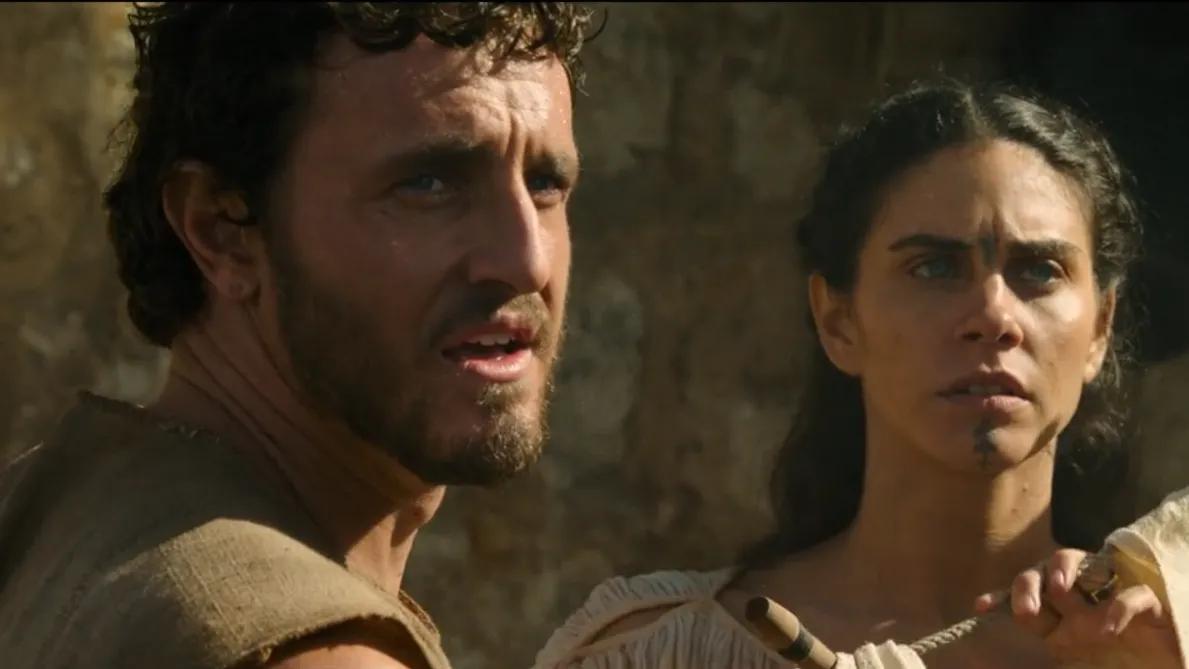
Is Gladiator II Worth the High Rating I Gave It?
If you check my Letterboxd page, you'll see I gave it a 4½-star rating, which might make anyone wonder if it truly deserves it. As with all things, there are elements that point to yes—and others that suggest otherwise. Let’s break it down.
Spanish version below | Versión en español más abajo
🎬 About the Film
As the title suggests, this is the sequel to the 2000 film Gladiator, directed—like this second installment—by the acclaimed British director, producer, and screenwriter Ridley Scott. For reference, the lead actors in the original were Russell Crowe, Joaquin Phoenix, and Connie Nielsen. Crowe played Maximus Decimus Meridius, who left behind a son that (you probably guessed it) is the protagonist of this new chapter.
The first film was a massive success, both at the box office and in awards, sparking renewed interest in the history of the Roman Empire and its key figures.
Now, 24 years later, we get this sequel, set 16 years after the events of the original.
This time, the main cast includes Paul Mescal (as Lucius Verus or “Hanno,” the son of Maximus), Denzel Washington, Pedro Pascal, Joseph Quinn, Fred Hechinger, May Calamawy, Connie Nielsen (reprising her role as the protagonist’s mother and now wife of Acacius [Pedro Pascal]), and Derek Jacobi.
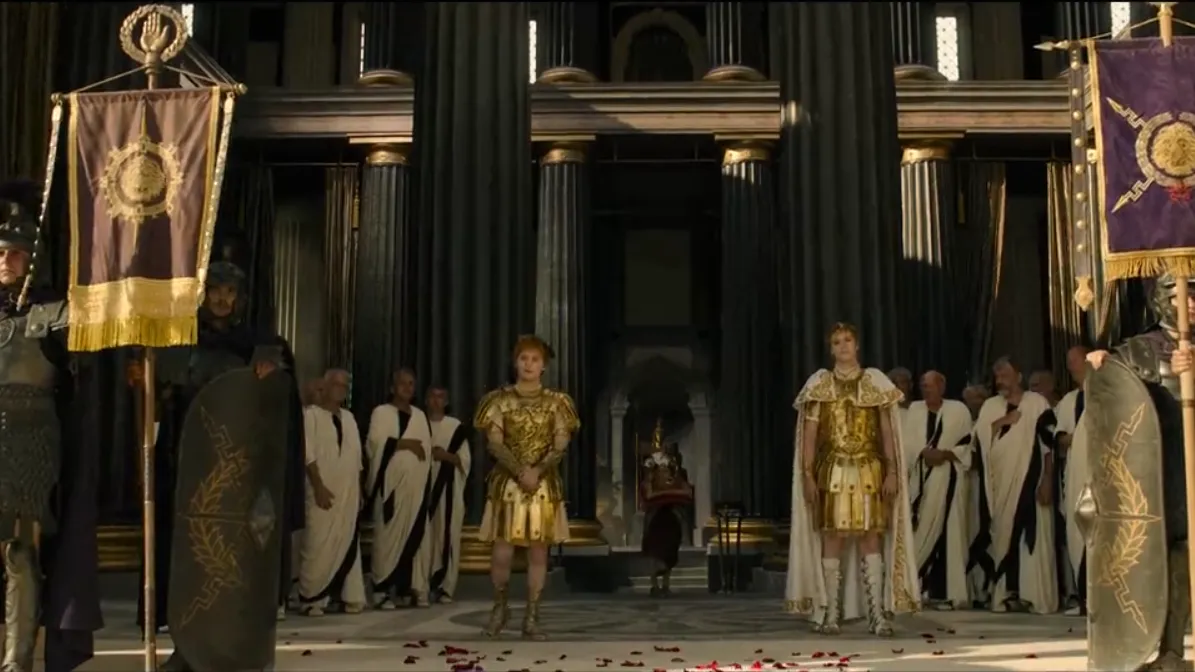
❌ Why Not
Like the first film, the anachronisms are glaring. There are many elements that don’t match the era, and for anyone with even a basic knowledge of Roman history, they’re jarring.
A common device nowadays is to alter historical facts—not in the sense of “alternate history,” but by tweaking details while keeping the same outcomes. I admit I struggle with this, and it forces me to consult books or search online to verify what’s real and what’s not—like the case of the twin emperors, their story, and their fate.
I was initially going to criticize something I thought was wildly exaggerated in the film, but while writing this post, I discovered it was entirely true: the Naumachiae—massive staged naval battles in ancient Rome. So I’ll include that in the positives.
Pedro Pascal’s performance teeters on the edge of acceptable. It’s a solid performance, but Pascal is just too much “himself.” He’s earned our admiration and respect that way, but it’s starting to reach a point where we’re unsure if it’s still working. Many famous actors with strong personalities have delivered incredible performances without losing their signature traits. I’m not sure Pascal can sustain that long-term. Hopefully, he can!
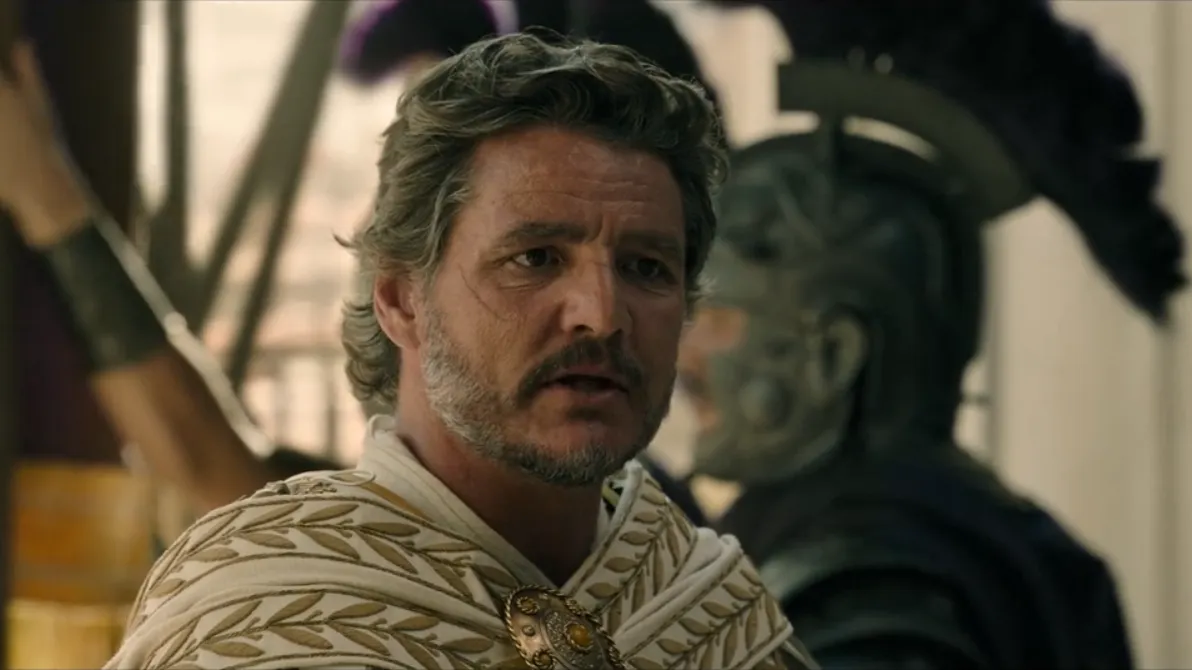
✅ Why Yes
One of the most important aspects for me is being told a believable story—one that grabs me, that’s so compelling I can forgive a few missteps. And this story does that (at least for me).
The recreation of the settings was stunning, which greatly enhances the visual experience. I watched it on TV and felt so immersed that I remember it as if I’d seen it in a theater. Everything related to production and costume design was fantastic. The film even received an Oscar nomination in the latter category.
Any contribution a film makes to my knowledge is always welcome. Such is the case with a detail that I found exaggerated, but when I discovered that it was historically accurate, it moved me deeply. A naval battle inside the Roman Colosseum. This is known as a naumachia, and although it was more common to stage them on riverbanks or lakes, they were also staged in colosseums, as shown surprisingly in the film.
Most of the performances were excellent. Just as I mentioned actors who are always “themselves,” one who usually falls into that category is Denzel Washington. However, this time I noticed a transformation in him that I hadn’t seen before—and I really liked it.
📝 In Summary
The rating I gave on Letterboxd doesn’t match the majority vote, which averages around 3.3 stars. But as I always say, cinema is a personal experience—and this one was very good for me. My fondness for the theme definitely influences my judgment, and in this case, the subject is well handled, with a coherent story and a well-executed ending.
Letterboxd’s synopsis of the film reads:
Years after witnessing the death of the revered hero Maximus at the hands of his uncle, Lucius is forced to enter the Colosseum after his home is conquered by the tyrannical Emperors who now lead Rome with an iron fist. With rage in his heart and the future of the Empire at stake, Lucius must look to his past to find strength and honor to return the glory of Rome to its people.
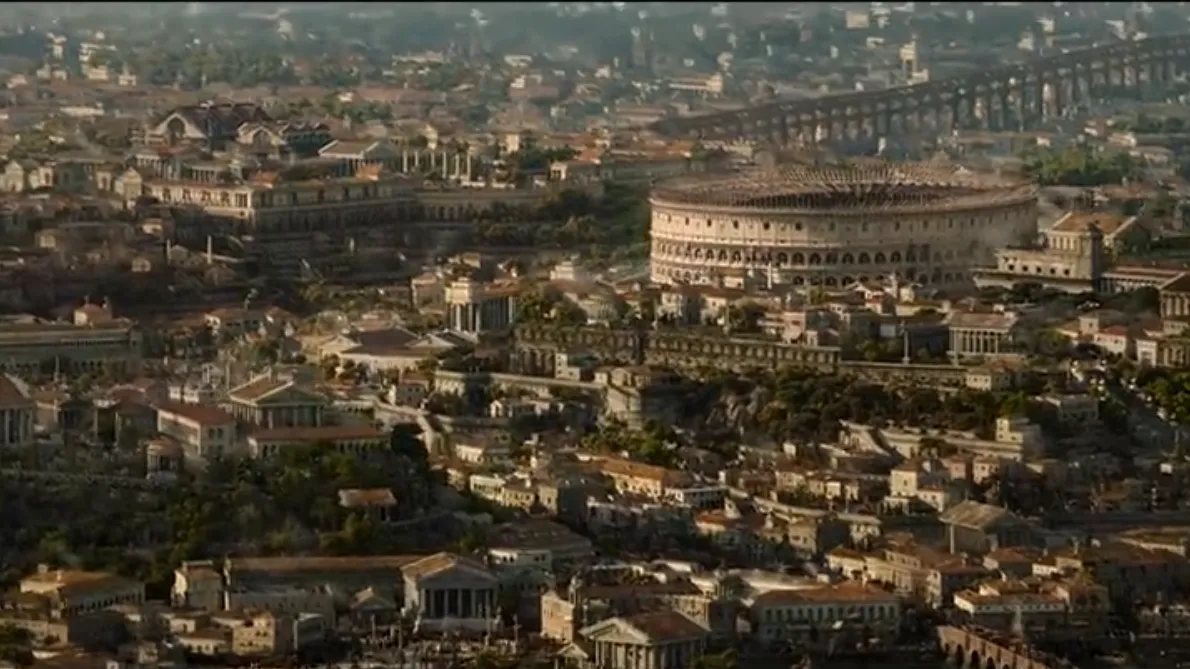

Versión en español
¿Vale la película Gladiador II la alta puntuación que le di?
Si revisas mi página de Letterboxd verás que le di una puntuación de 4 ½, a lo cualquier persona pudiera preguntarse si en realidad se lo merece. Como en todas las cosas, hay elementos que apuntan a que sí y otras a que no. Vamos por partes.
🎬 Acerca de la película
Como lo indica su título, se trata de la segunda parte de una película Gladiator, del año 2000, dirigida, al igual que esta segunda parte, por el reconocido director, productor y guionista británico Ridley Scott. Valga mencionar como referencia, que los actores principales de la precuela fueron Russell Crowe, Joaquin Phoenix y Connie Nielsen. El primero personificó a Máximo Décimo Meridio, quien dejó un hijo que (posiblemente ya lo adivinaste) es el protagonista de esta segunda etapa.
Aquella primera parte fue sumamente exitosa, tanto en taquilla, como en premios y trajo consigo un resurgimiento del interés por la historia del Imperio Romano y sus protagonistas.
24 años después llega esta segunda parte, cuya trama se desarrolla 16 años después de la primera.
En esta oportunidad los actores principales son Paul Mescal (como Lucio Vero o “Hanno”, el hijo de Máximo y ), Denzel Washington, Pedro Pascal, Joseph Quinn, Fred Hechinger, May Calamawy, Connie Nielsen (quien repite y es la madre del protagonista y actual esposa de Acacio [Pedro Pascal]) y Derek Jacobi.
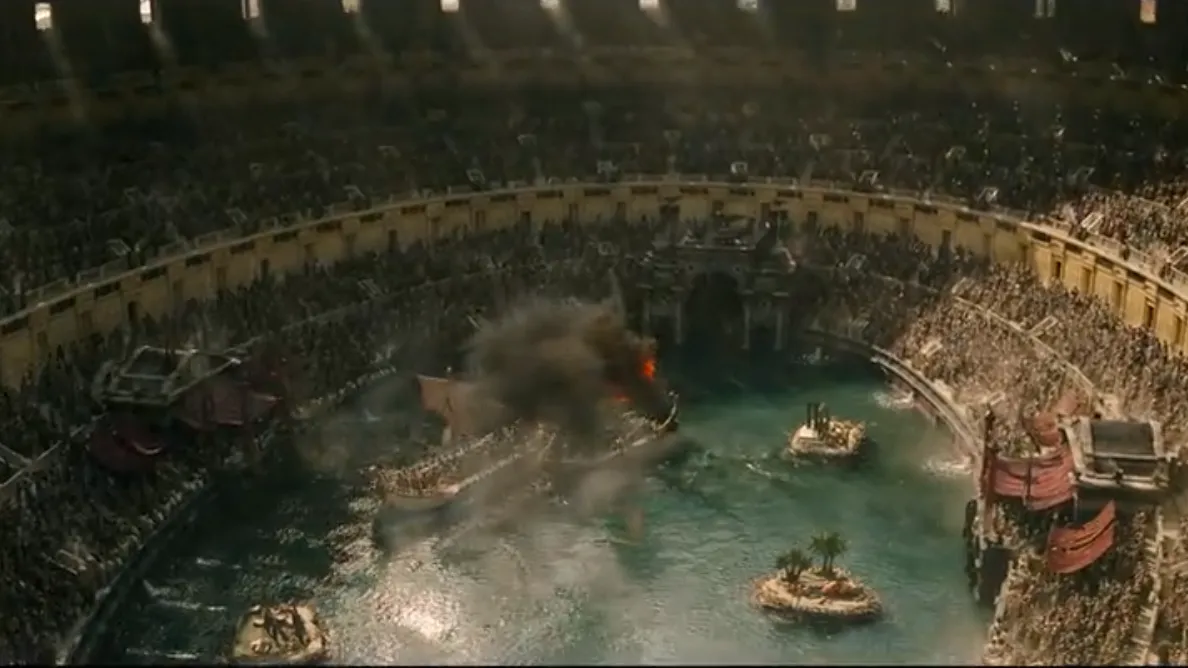
❌ Por qué no
Al igual que la primera, los anacronismos son severos. Hay cantidad de elementos que no se corresponden con la época y que, para el que tiene un mínimo de conocimientos sobre aquellos tiempos, le chocan.
Un recurso común hoy en día es alterar los hechos históricos. No con el concepto de la “ucronía”, sino de cambiar detalles de la historia, dejando los mismos resultados de la historia real, pero de manera distinta. Reconozco que me cuesta lidiar con eso y además me obligan a tomar los libros o hacer bśuquedas en internet para poder verificar qué es cierto y qué no, como lo es el caso de los emperadores gemelos, su historia y su fin.
Inicialmente iba a colocar una crítica acá de algo que me pareció una exageración tremenda en la película, pero que descubrí (escribiendo este post) que era totalmente cierto: Las Naumaquias. Por lo que lo incluiré en los aspectos positivos.
La actuación de Pedro Pascal está en el borde de lo aceptable. Es decir, la actuación está muy bien, el punto es que Pedro Pascal es demasiado él. Hasta ahora ha sabido ganarse nuestra admiración y respeto de esa manera, pero empieza a llegar a un punto en que no sabemos si está realmente bien. Hay muchos actores de gran fama y trayectoria que, con su personalidad muy marcada y sin perder los rasgos del actor, han hecho trabajos increíbles. Pero no estoy seguro si Pascal lo logrará mantener mucho tiempo. ¡Ojalá que sí!
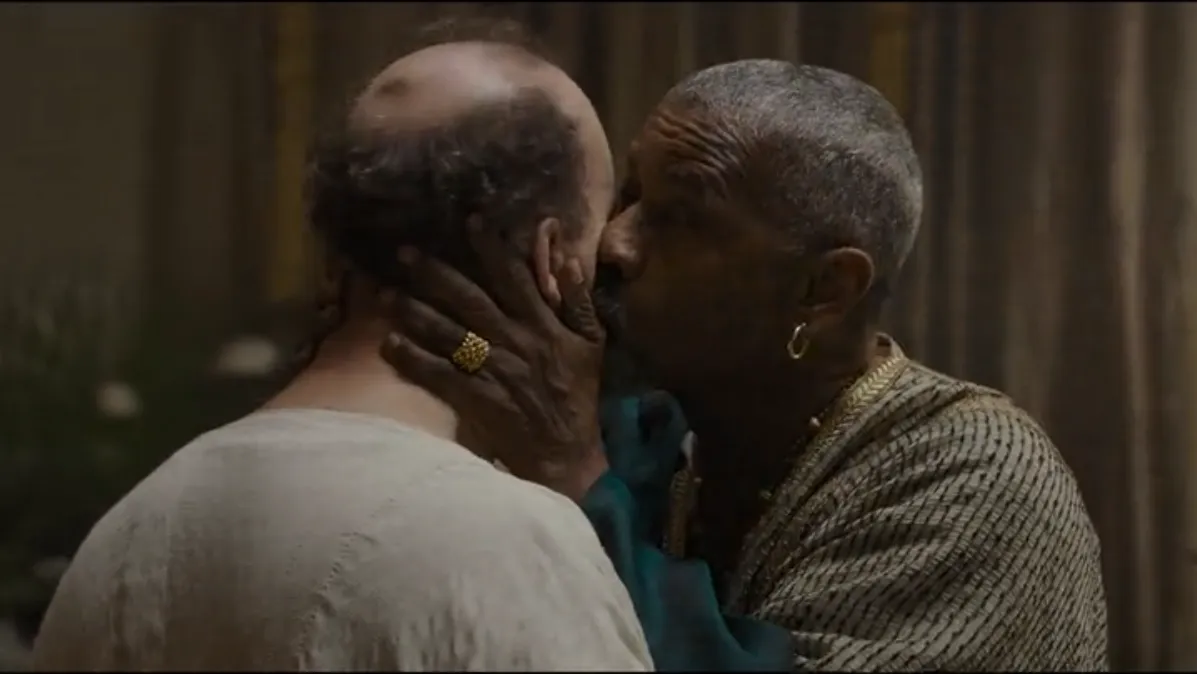
✅ Por qué si
Uno de los aspecto más importantes para mí, es que me cuenten una historia creíble, que me atrape, que sea tan atractiva que uno le pueda permitir algunos deslices. Y esta historia lo hace (al menos para mí).
La recreación de los espacios me resultó alucinante, lo que favorece enormemente toda la parte visual. La vi en televisión y me sentí tan inmerso, que lo recuerdo como si hubiera ido al cine. Todo lo relacionado con la producción y el vestuario, me encantó. En este último renglón la película tuvo una nominación a los premios Oscar.
Cualquier aporte que haga una película a mis conocimientos, siempre me resulta grato. Tal es el caso de un detalle que me pareció exagerado, pero al descubrir que era cierto históricamente, me produjo una gran emoción. Una batalla naval dentro del Coliseo Romano. Esto se conoce con el nombre de Naumaquia y aunque era más común hacerlas en riberas de ríos o en lagos, también llegaron a escenificarse en coliseos, tal como se muestra de manera sorprendente en la película.
La mayoría de las actuaciones me gustaron mucho. Así como mencioné a los actores que suelen ser siempre “ellos”, uno que entra para mí en esa categoría es Denzel Washington Sin embargo, en esta oportunidad logré percibir una transformación que no había visto antes en él y que me gustó mucho.
📝 En resumen
La puntuación que le asigné en Letterboxd, no se corresponde con el voto mayoritario, el cual le da un promedio de 3.3, pero como siempre he dicho, el cine es una experiencia personal y esta fue, para mí, muy buena. Sin duda, en mi criterio influye el gusto por la temática y, en esta ocasión, el tema está muy bien tratado, así como la historia que es muy coherente y con un cierre bien logrado.
La sinopsis que da Letterboxd acerca de la película, es la siguiente:
Años después de presenciar la muerte de su venerado héroe Maximus a manos de su tío, Lucius se ve obligado a entrar en el Coliseo tras la conquista de su hogar por parte de los tiránicos emperadores que ahora gobiernan Roma con mano de hierro. Con la ira en su corazón y el futuro del Imperio en juego, Lucius debe recurrir a su pasado para encontrar la fuerza y el honor necesarios para devolver la gloria a Roma.
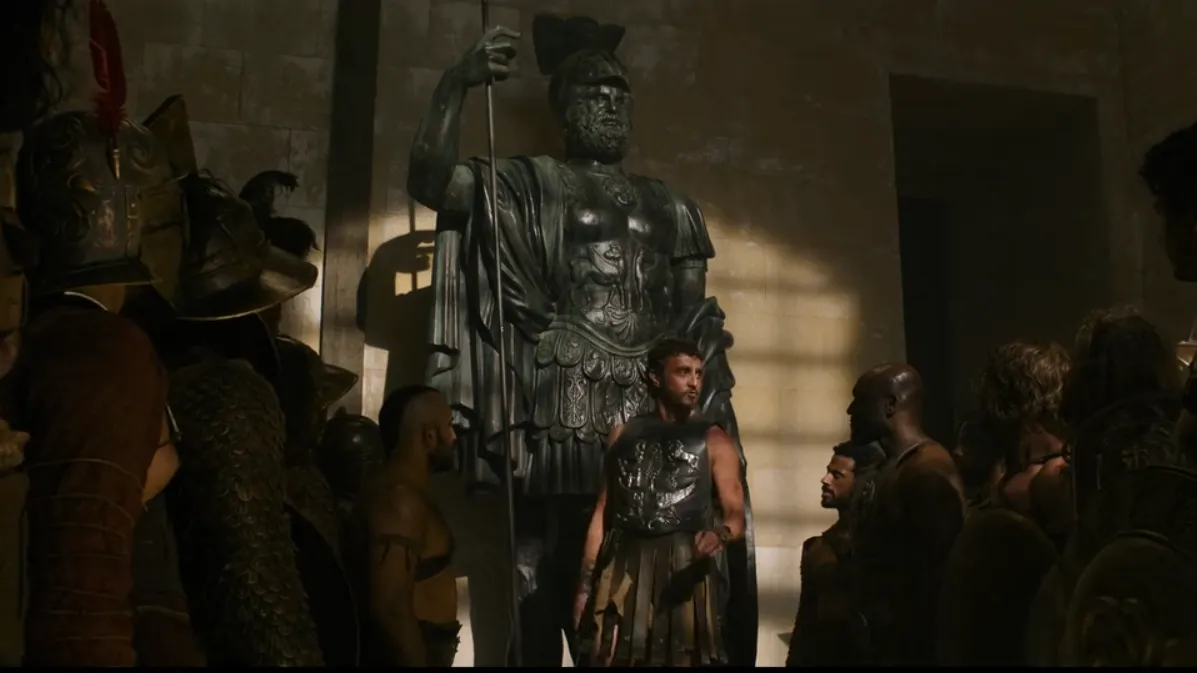
Trailer

All images are screenshots taken by me.
Todas las imágenes son capturas de pantalla hechas por mí
 Vote la-colmena for witness / By @Ylich |
|---|